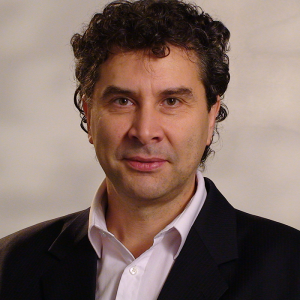Advising on the use of digital diplomacy
A group of researchers at ODID have drawn on their research to offer advice and guidance to a wide range of diplomats and foreign ministry officials on how to optimise their use of digital diplomacy.
The Oxford Digital Diplomacy Research Group, comprising Associate Professor Corneliu Bjola, DPhil Ilan Manor and alumna Dr Jennifer Cassidy, now Lecturer in Politics at St Peter’s College, have been carrying out research into three distinct areas: the use of digital tools to enhance diplomatic activities pertaining to consular affairs, crisis communication and public diplomacy; the impact of the next generation of digital technologies on diplomacy, including virtual and augmented reality, artificial intelligence and blockchain technology; and the impact of algorithms, disinformation and echo chambers on diplomatic activity. The group was also awarded a research grant from the Philligence Fund to examine ways in which diplomats can use digital tools to stem the tide of online hate and misleading information.
Drawing on this work, the researchers have held a series of events with diplomatic practitioners in the UK and abroad over the past two years. These have included the London Digital Diplomacy Lecture series co-organised with the embassies of Israel, Latvia, Slovakia, Canada and the Cypriot High Commission, which aimed to bridge knowledge and practice gaps between academics and diplomats working in the UK.
The group also organised two events at the UN headquarters in Geneva focusing on the use of digital strategies in support of foreign policy goals, a workshop at the UN headquarters in New York examining the use of digital tools for disseminating strategic narratives, an Ambassadors’ Forum in Tokyo discussing best practices in digital diplomacy, a workshop at the German foreign ministry focused on the use of networks in public diplomacy, a workshop on Digital Public Diplomacy at the Hague Digital Diplomacy Camp convened by the Ministry of Foreign Affairs of the Netherlands and a similar one with the Israeli Ministry of Foreign Affairs.
In the coming months, members of the group will also speak at the UN Commission on the Status of Women in New York, invited by Ireland’s Ministry for Foreign Affairs and Trade, after their election to the Commission last year. Intertwining the themes of gender and technology, the talk will speak to the status of women in diplomatic practice, and how technology can act as a tool for driving positive change, for achieving gender parity.
The researchers have been asked to contribute a segment on the use of digital diplomacy to a Massive Open Online Course (MOOC) being created by the UK’s Foreign and Commonwealth Office. In addition, the Lithuanian Foreign Ministry is developing recommendations on the use of social media by embassies during a crisis or terrorist attack based on interactions with the team, and has initiated a pilot study to assess the country’s digital diplomacy capabilities.
The group has also contributed to the adoption of the VILNIUS CHARTER on Societal Resilience to Disinformation and Propaganda in a Challenging Digital Landscape (June 2018) by communication directors and senior communications specialists from the EU Member States, institutions and candidate countries. They have also been collaborating in developing reports and improving skills on digital diplomacy and strategic communication for various diplomatic actors and institutions, including the German Ministry of Foreign Affairs, the European Institute of Peace, the Centre for European Perspective, the Diplomatic School of Armenia, the USC Centre on Public Diplomacy, the Club of Venice and the UK Government Digital Service Academy.



